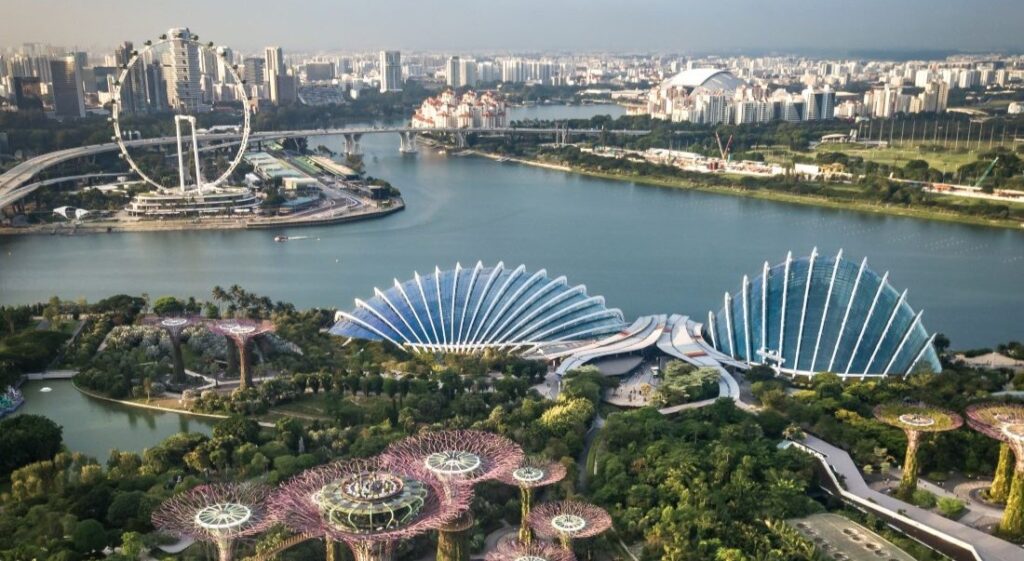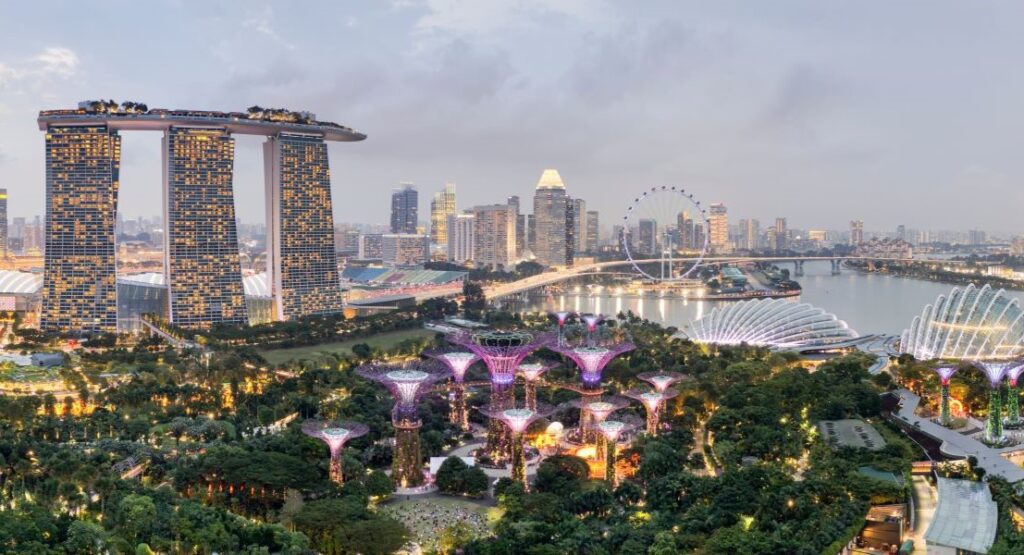This website uses cookies so that we can provide you with the best user experience possible. Cookie information is stored in your browser and performs functions such as recognising you when you return to our website and helping our team to understand which sections of the website you find most interesting and useful.
Global Wealth & Lifestyle Report: 2023’s most affluent cities
By Michelle Johnson | 7 August 2023 | Wealth
As wealth management group Julius Baer releases its 2023 Global Wealth & Lifestyle Report, we discover the new trends that are changing the face of affluent living

London. New York. Hong Kong. When we think of the world’s most affluent cities, these are the locations that immediately spring to mind for their historic and luxurious legacies. But there may be some new designer destinations rising to challenge the old guard – as the Julius Baer Global Wealth & Lifestyle Report 2023 shows.
The report, released in June by the Swiss wealth management group and private bank, is the firm’s annual assessment of global trends. Its Lifestyle Index is based on a review of 20 goods and services that represent discretionary purchases by high-net-worth individuals (HNWIs) globally – ranging from property and lawyers to supercars and designer handbags. The cost of these items in 25 key cities are then compiled and compared, to examine trends on global, regional and categorial levels.
So, what are the key findings? It will be unsurprising to learn that, three years on, Covid-19 recovery is still a major factor – but perhaps not in the way one would expect. People are enjoying hospitality – such as holidaying and eating out – at levels not seen since before early 2020, while demand spikes on “lockdown favourites”, such as laptops and bicycles, have eased.
“We are navigating uncharted territory when it comes to understanding the lasting effects of the pandemic and finding a way forward in the ‘new normal’,” writes Christian Gattiker-Ericsson, head of research at Julius Baer. “One of the key, and somewhat surprising, takeaways in this edition [of the report] is that the average cost increase of our proprietary Lifestyle Index is bang in line with previous readings. This means prices of premium goods and services kept climbing at their ‘normal’ levels of mid- to high-single-digit percentage points.”
This is encouraging news, indeed. Christian explains in the report that, before 2022, the “rule of thumb” was that affluent consumers faced double the average rate of inflation. In 2022, where global inflation reached almost 8%, Julius Baer’s Index would have expected to see inflation rise to more than 15% in US Dollars. In fact, the rate of inflation on all goods and services was just 6% in US Dollar over the past 12 months – though local currencies reached an average of 13%.
However, geo-political events – such as the war in Ukraine, Brexit and the climate crisis – are still impacting the global market through cost of living and energy prices.
“Wealthy individuals are adapting their consumption and lifestyle habits both to make hay while the sun shines and to brace for any future shocks”.
TOP OF THE CHARTS

Key findings from the 2023 Index reconfirms Asia as the costliest region to live well for the fourth year in a row but, equally, asserts its authority as a key driver of global luxury and economy. In the global Lifestyle Index, Singapore makes its debut as the highest-ranking city, followed by Shanghai (last year’s leader) and Hong Kong. Taipei, ranking at number eight, is the only other Asian city to feature in the top ten.
In the Americas, New York and Miami both feature in the top ten (thanks, no doubt, to the strengthening of the dollar) – with the Big Apple making a significant climb to fifth place from 11th last year – while São Paulo, Brazil, has made the top rankings for the first time. Santiago de Chile makes its debut on the list, joining in 23rd place, and confirming the Americas as the second most expensive region.
This means that, for the first time, the EMEA region is the most affordable in which to live well. While Monaco has held its sixth place position, London is now the only other European city in the top ten, at fourth place (dropping from second in 2022). Meanwhile, Dubai has jumped from 14th to seventh place in 12 months.
In terms of spending power, Index prices shows that our spending has become less about product and more about wellness: fitness and wellbeing practises, health insurance and education – as well as family and financial resilience – have appeared as top priorities for affluent individuals to help prepare for future disruption. This extends to quality time spent in the hospitality sector, too, with spending on gourmet meals and five-star hotels rising in all regions over the last year.
In terms of the biggest price changes, wine (+17.23%) and whisky (+16.15%), hotel suites (+15.25%) and business class flights (+10.13%), and cars (+19.26%) reflect demand, while residential property has seen the largest reduction, falling by -5.76%.
“Our findings show that the world is on the move again, the thirst for travel, experiences, and luxury goods has risen significantly, and people are consistently spending more,” Christian writes. “They are also conscious that health and wellbeing are essential to future-proofing themselves and their families, as well as shoring up their finances to face any unexpected adversity.”
Discover more trends in wealth and luxury living with Tempus







